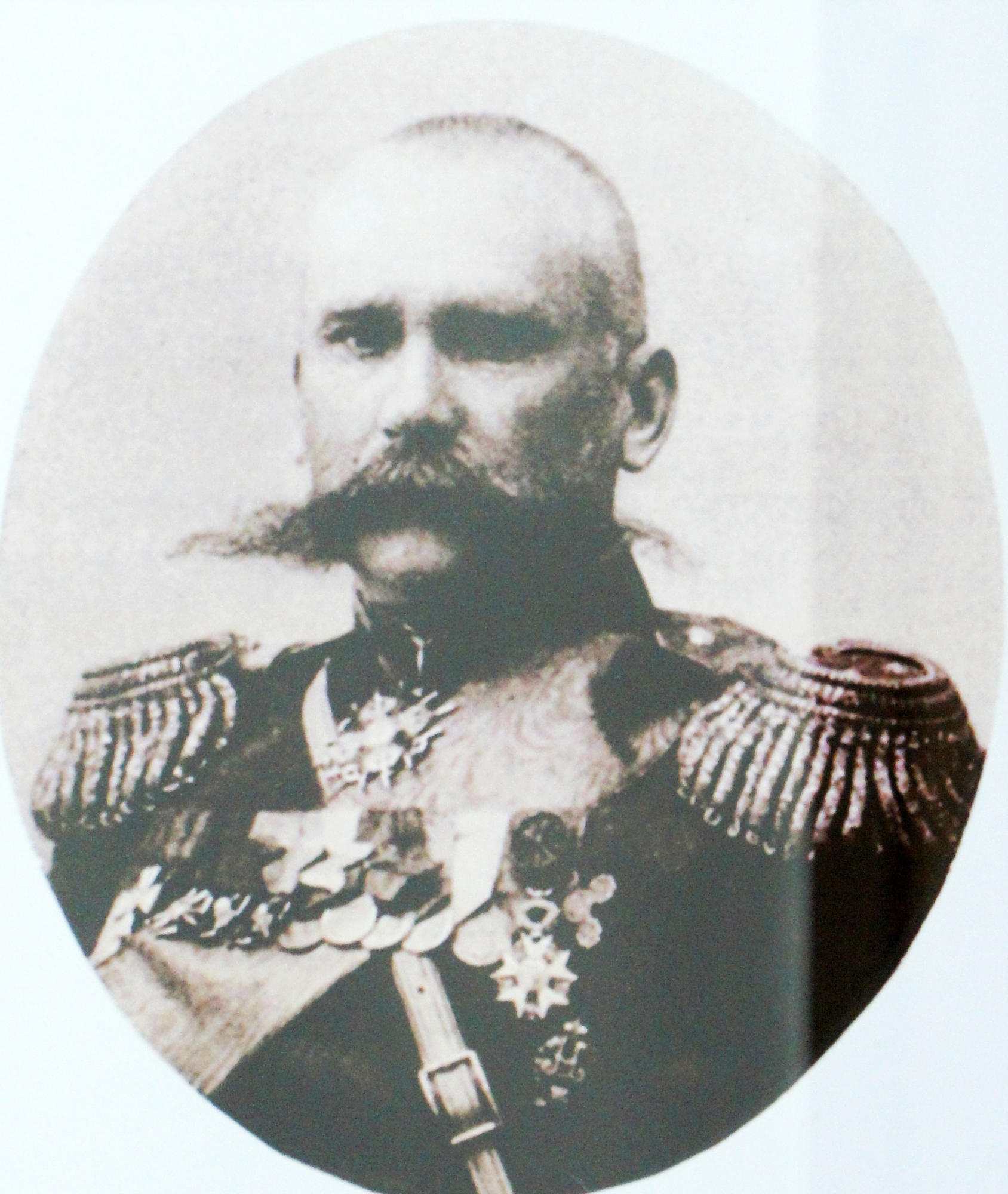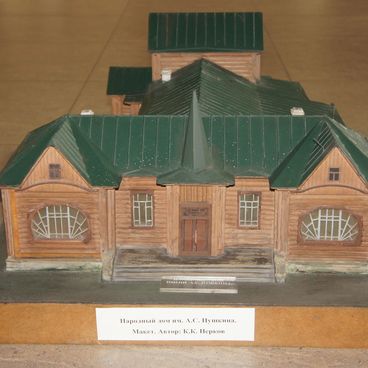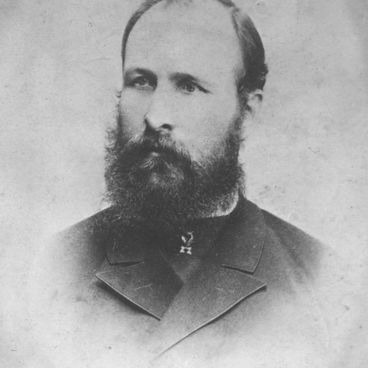This photograph of the early 20th century depicts Pavel Putilov, a Russian general, participant in the Russo-Turkish war of 1877-1878 and the Russo-Japanese war of 1904-1905. Over the years of service Putilov was honored by many Russian and foreign orders and awards. For example, he received the Order of St. Anne of the 4th class with the inscription For Courage and the Order of St. Vladimir of the 2nd class with swords and a bow, as well as the Romanian Iron Cross and the Officer’s Cross of the Legion of Honor (France). In addition, Putilov became one of the 25 St. George Knights of the city of Kuznetsk.
Pavel Putilov was born in April 1854 in St. Petersburg into a noble family. The future general received general education in the Nizhny Novgorod military gymnasia school of Count Alexei Arakcheev, who became famous for creating a system of military settlements in Russia. Having finished his education in the gymnasia, Putilov entered the 1st Pavlovsk Military School and graduated from it two years later with honors. Pavel Putilov was one of the 12 best students of his graduation class; this gave him the right to choose a place for further service himself.
The best period in Putilov’s career fell on the beginning of the 20th century. During the Russo-Japanese War, he received a promotion into the rank of Major General. Putilov led his 5th Eastern Rifle Division of the 2nd Brigade through all the main land battles of the war. He personally led the night attack on the hill near the Shaho River and, despite the concussion, was constantly together with the troops throughout the assault and led the battle. The attack ended with the victory of the Russian troops and the capture of fourteen pieces of enemy artillery.
For his valor, Putilov received the Order of St. George of 4th class. Not only Russian, but also foreign newspapers wrote about the general, and the site occupied by him during the battle was renamed into Putilov Hill.
At the end of the Russo-Japanese War, Putilov went to serve in the Far East, and in 1911 he submitted a letter of resignation. It was approved, and soon Putilov moved to Kuznetsk, where for a year he headed the city garrison which was part of the Siberian Army.
During the Civil War, several detachments of Red partisans entered Kuznetsk. Having defeated the city, they arrested Putilov and, according to researchers, executed him with particular cruelty.
Pavel Putilov was born in April 1854 in St. Petersburg into a noble family. The future general received general education in the Nizhny Novgorod military gymnasia school of Count Alexei Arakcheev, who became famous for creating a system of military settlements in Russia. Having finished his education in the gymnasia, Putilov entered the 1st Pavlovsk Military School and graduated from it two years later with honors. Pavel Putilov was one of the 12 best students of his graduation class; this gave him the right to choose a place for further service himself.
The best period in Putilov’s career fell on the beginning of the 20th century. During the Russo-Japanese War, he received a promotion into the rank of Major General. Putilov led his 5th Eastern Rifle Division of the 2nd Brigade through all the main land battles of the war. He personally led the night attack on the hill near the Shaho River and, despite the concussion, was constantly together with the troops throughout the assault and led the battle. The attack ended with the victory of the Russian troops and the capture of fourteen pieces of enemy artillery.
For his valor, Putilov received the Order of St. George of 4th class. Not only Russian, but also foreign newspapers wrote about the general, and the site occupied by him during the battle was renamed into Putilov Hill.
At the end of the Russo-Japanese War, Putilov went to serve in the Far East, and in 1911 he submitted a letter of resignation. It was approved, and soon Putilov moved to Kuznetsk, where for a year he headed the city garrison which was part of the Siberian Army.
During the Civil War, several detachments of Red partisans entered Kuznetsk. Having defeated the city, they arrested Putilov and, according to researchers, executed him with particular cruelty.


